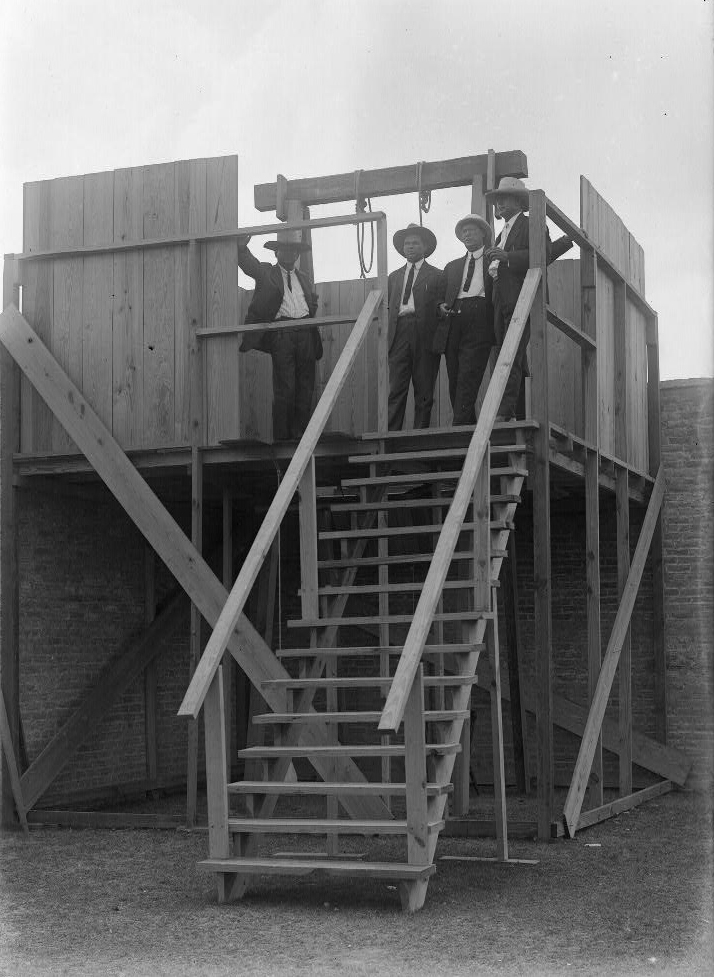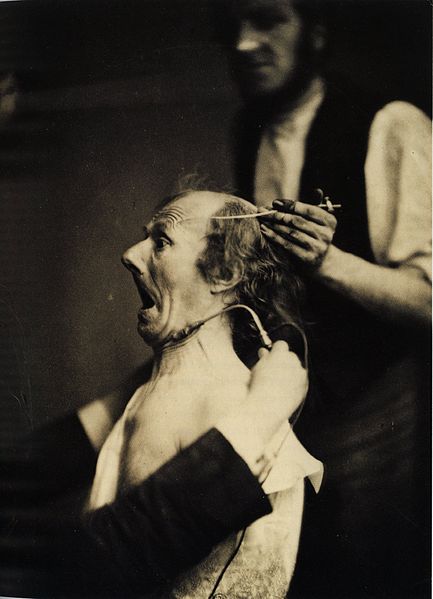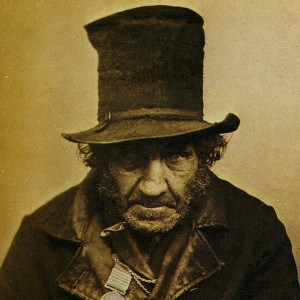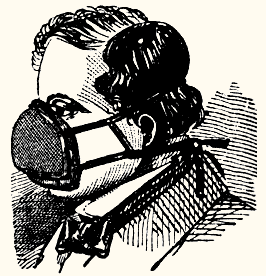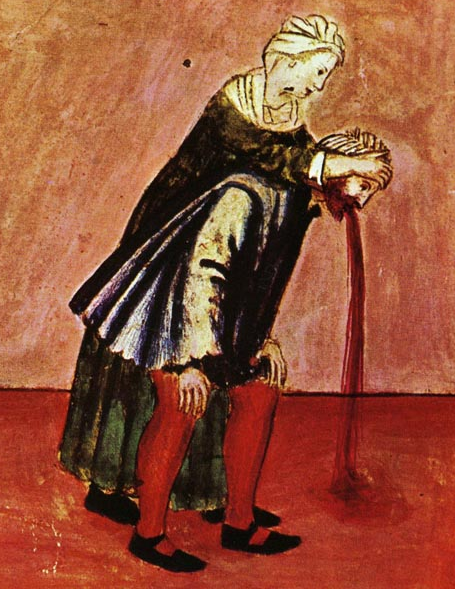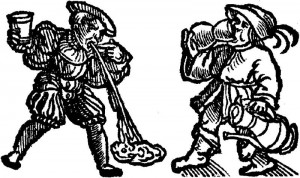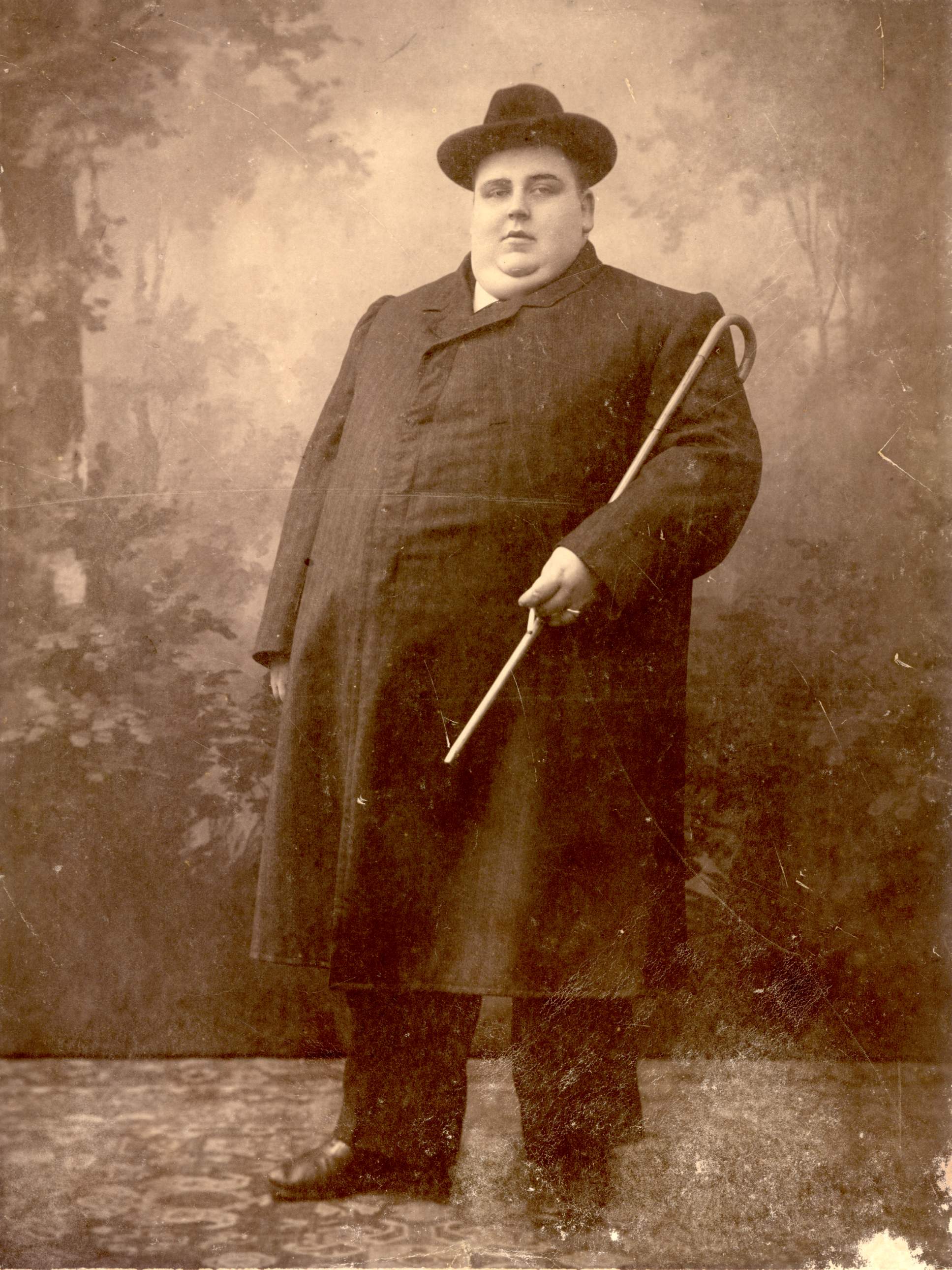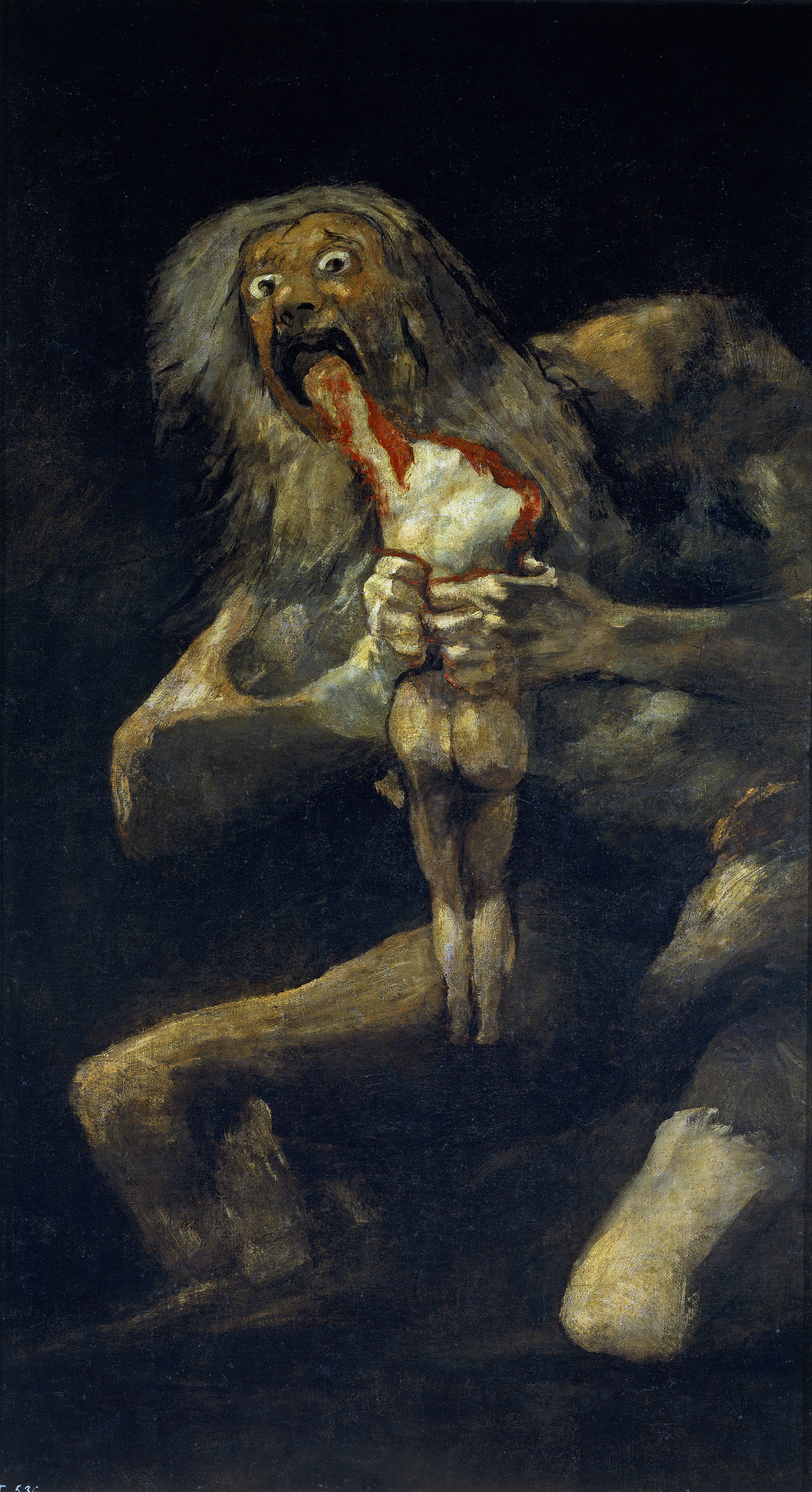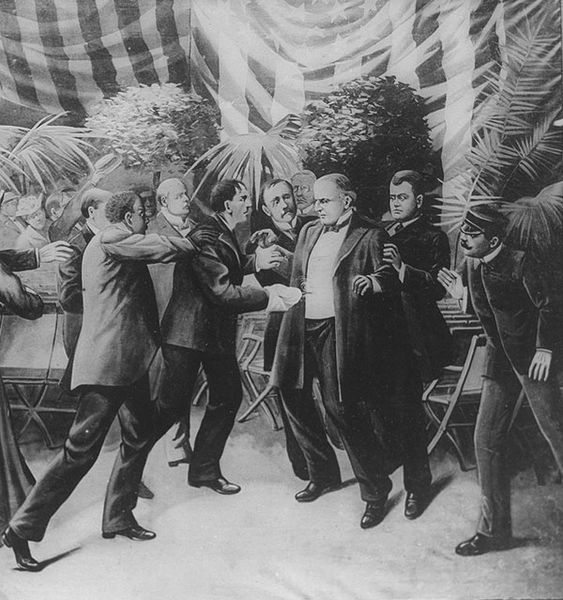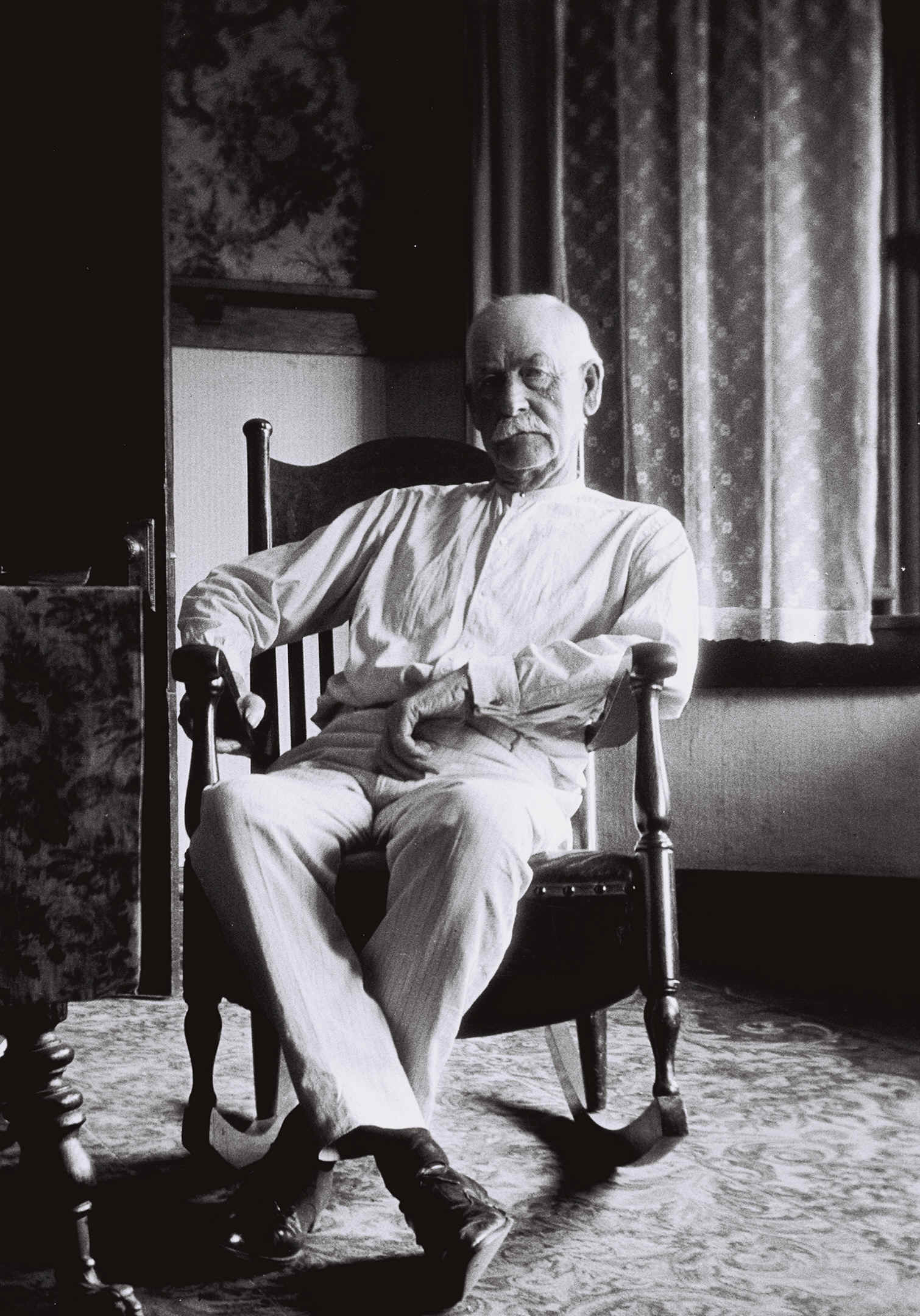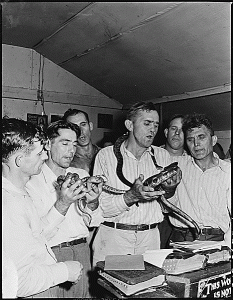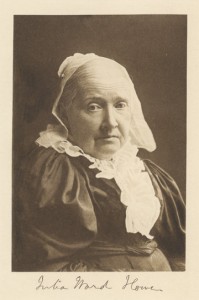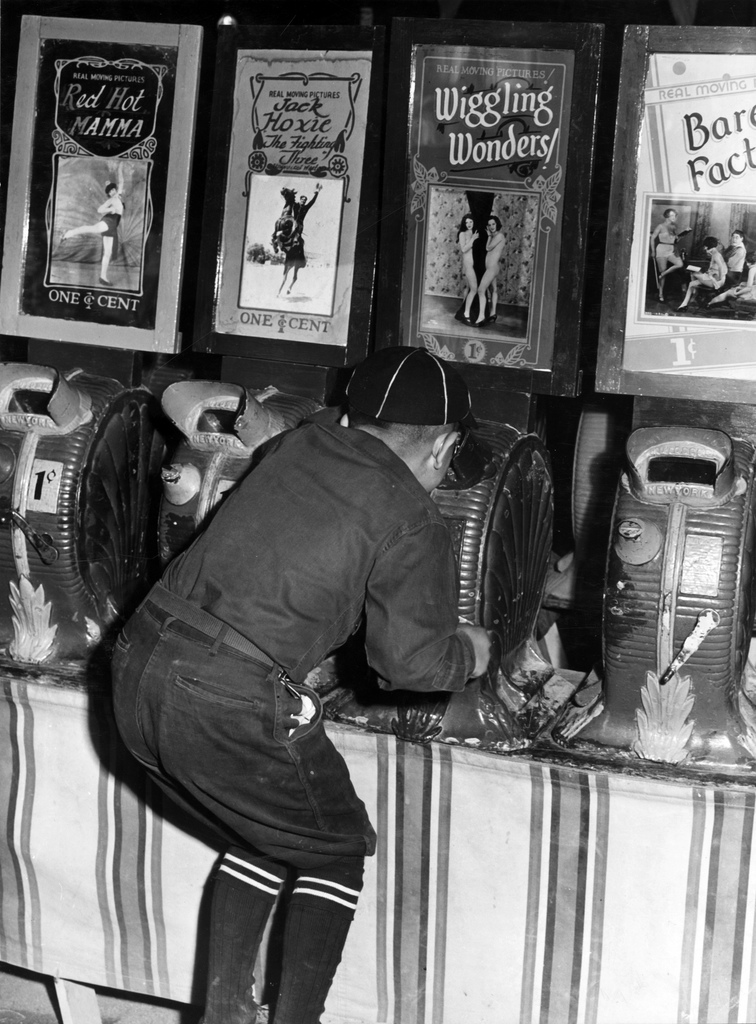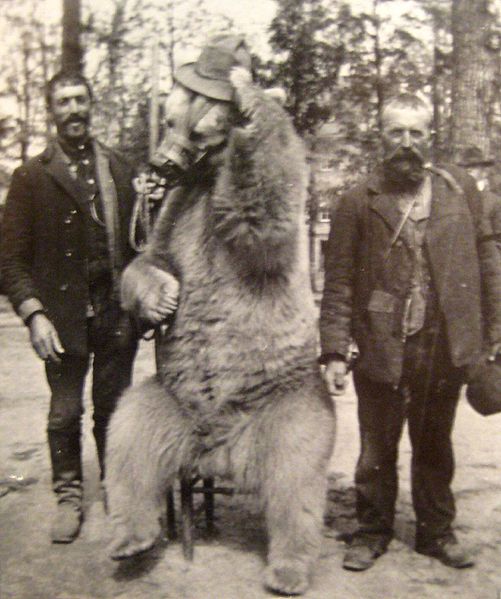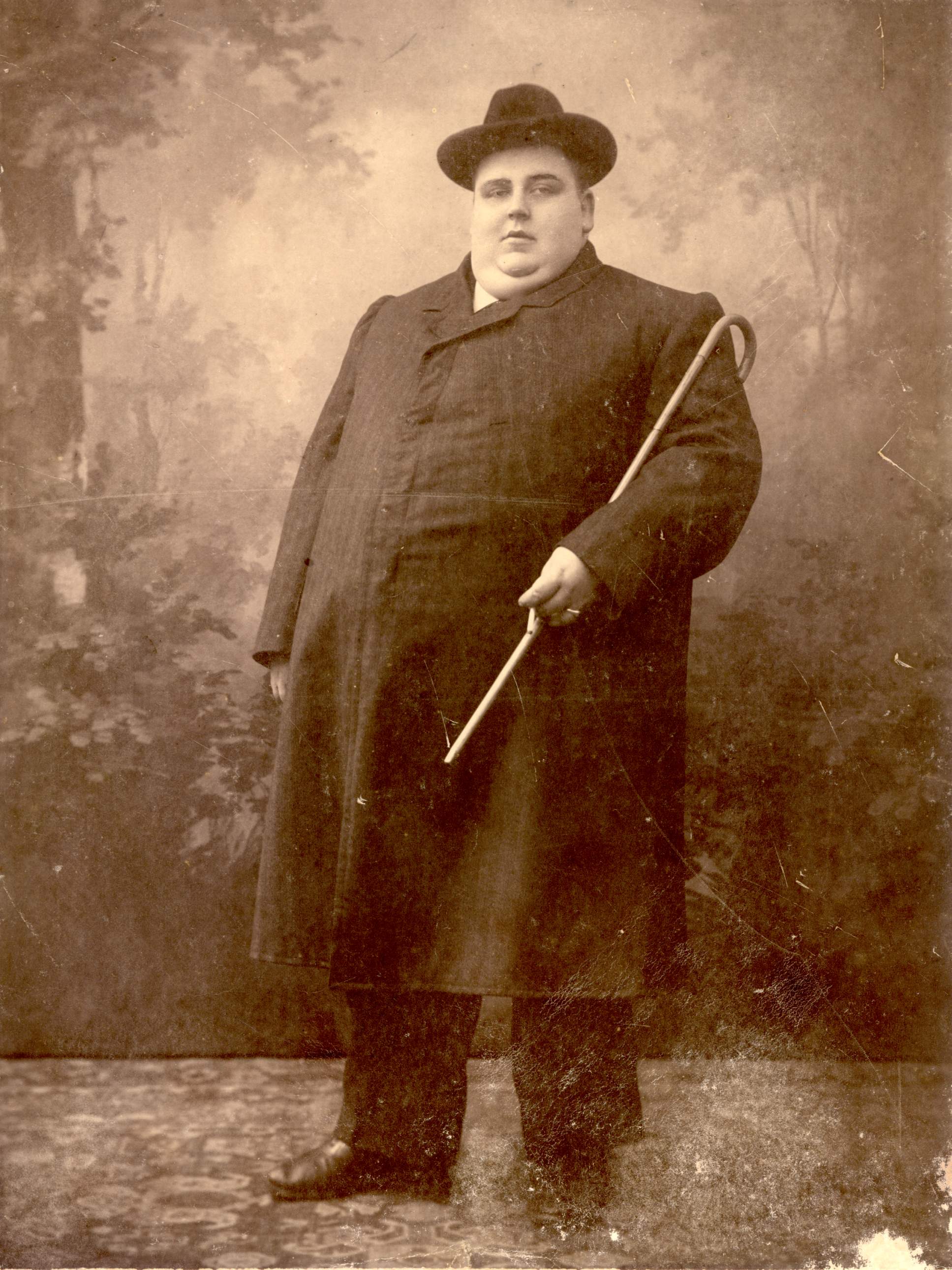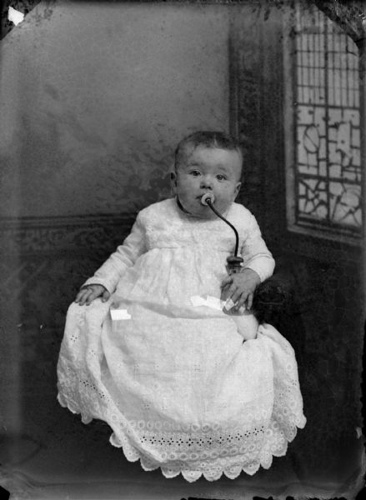
"He pleaded that the authorities refrain from shearing his locks."
A Rasputin-like figure from the 19th century, Francis Schlatter, a cobbler who turned to faith healing, was rumored to have retired and/or died in 1896 or so. But the Brooklyn Daily Eagle subsequently ran an assortment of stories about him–or others purporting to be him. At some point, it seems he became more idea than flesh, “appearing” in cities all over America. The following are a few pieces about those strange years.
••••••••••
“Schlatter on a Wheel” (July 15, 1896): “Guthrie, Okla.–A man claiming to be Schlatter, the healer, from Denver, rode into town yesterday on a bicycle and is creating a sensation. He was dressed in a trailing gown of black and wore a curling beard and long, flowing hair. As soon as his identity became known a great crowd gathered about the man and since then hundreds of people have constantly dogged his footsteps. Last night he addressed an immense throng, laying on hands to heal people and blessing hundreds of handkerchiefs.”
••••••••••
“Schlatter the Healer” (August 19, 1897): “Pittsburgh, Pa.–Late last night it was positively announced that Mrs. Margaret Ferris, widow of the builder of the Chicago wheel, had been married in Pittsburgh to Francis Schlatter, healer, of Canton. The ceremony was performed by Rev. Mr. Ward, pastor of St. Peter’s Episcopal Church. Mr. and Mrs. Schlatter are now at a downtown hotel.”
••••••••••
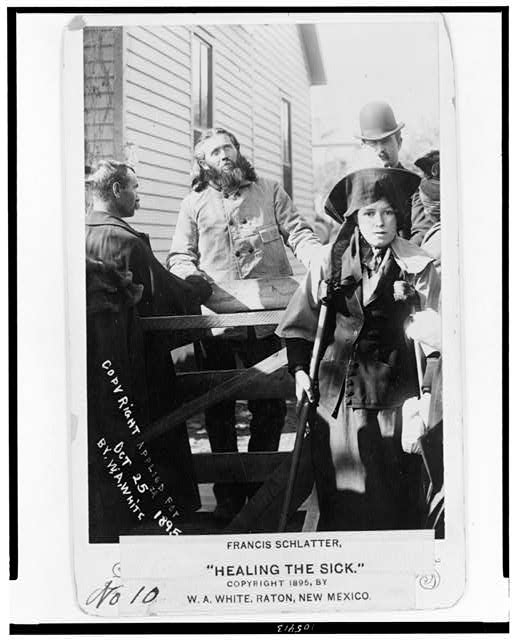
"He would recite an inarticulate prayer."
“Schlatter the Healer” (January 10, 1899): “Lynbrook, L.I.–A tramp, who resembles Schlatter, the healer, and who is evidently deranged, applied for lodging at the Rudd Farm, East Rockaway, and was permitted to sleep in the coachman’s room. He spent a week in fasting and prayer and was only seen to leave his room once in all that time. He refuses all food and it is supposed that he is preparing by fasting and prayer for forty days to resume the work of preaching and healing. He seems younger than Schlatter and his features strikingly resemble those of Christ as depicted by modern artists. Although evidently a cultured and scholarly man he refuses to talk and is apparently anxious to conceal his identity.”
••••••••••
“Small Audience Attracted” (January 30, 1899): “Brooklyn–Before an audience of about two hundred spectators, the Rev. Charles McLean, M.D., who claims to be the original Schlatter, the divine healer in a resurrected form, gave an exhibition of his healing powers. The meeting was held at the Antheneum, Atlantic Avenue and Clinton Street. Among the two hundred were those afflicted with every ill flesh is heir to. Some hobbled up as early as 7 o’clock. although it was after 8 o’clock before the alleged healer began to talk. Others were led, and about the whole crowd was an air of tragic expectation. About thirty came up on the front seats to be treated when the call was made for subjects. The healer rejected all but ten, after a hurried questioning as to the nature of their ills. He explained that he did work where he felt called and those subjects not treated must report at future meetings. One by one as rapidly as he could apply his method these ten were led up to the stage and were seated in a chair with back to the audience. For a minute the hands of the healer would be pressed over their foreheads. At the same time he would recite an inarticulate prayer. Then he would interview his subject as to the result of the treatment and announce the decision.”
••••••••••
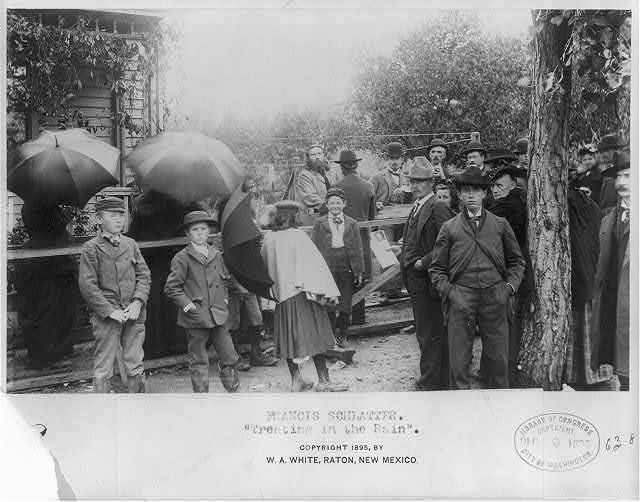
"About the whole crowd was an air of tragic expectation."
“Divine Healer” (July 21, 1901): “Washington–Francis Schlatter, the so-called ‘divine healer,’ was tried in the police court to-day as a vagrant and fined $10 or thirty days in the workhouse.
As he returned to the cells he pleaded that the workhouse authorities refrain from shearing his locks. Schlatter stated to the court that he had come here to get his wife, who had deserted him to approve the sale of some English property. Becoming discouraged, he had commenced to drink. A policeman testified that he found Schlatter surrounded by a boisterous crowd and that he admitted having been on a ‘drunk’ since July 3.”
••••••••••
“Schlatter Sent to the Island” (August 25, 1901): “Manhattan–Francis Schlatter, who calls himself ‘the divine healer,’ was sentenced to three months in the workhouse on the Island yesterday by Magistrate Zeller, in the Harlem police court. Mrs. Elizabeth Muller, the janitress of the house at 44 Bradhurst Avenue, where Schlatter’s wife had been living since she quarreled with and left him, was the complaintant against the prisoner. The healer’s wife left the house a few days ago, and Mrs. Muller charged that he constantly annoyed all the tenants in the house, persisting in visiting the rooms to see his wife. On each of these visits, the complaintant said, Schlatter was in an intoxicated condition, bordering on delerium tremens.
When the sentence of three months was pronounced Schlatter said that he did not care, as he had powerful friends who would have him set free. Among these he named President McKinley.”•


